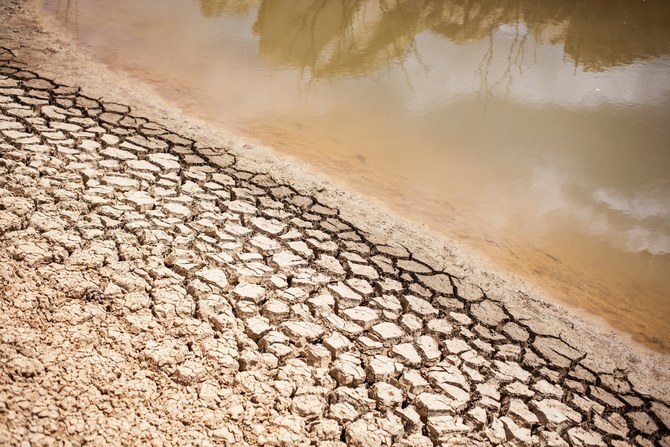PARIS: Green Climate Fund chief Mafalda Duarte is on a mission to help vulnerable nations that have yet to receive a penny from the world’s largest dedicated source of climate finance.
The United Nations’ flagship organization for chanelling climate funding was set up for developing countries worst hit by climate impacts even if they are least responsible for carbon pollution that drives warming.
Money disbursed helps nations to draw down their greenhouse gas emissions, on the one hand, and adapt to storms, droughts and heatwaves made worse by climate change, along with sea level rise, on the other.
The fund, which began doling out grants a decade ago, has identified 19 climate-vulnerable nations that have received no or very limited funding.
“We are deliberately targeting those,” Duarte told AFP in an interview, taking stock of her first year in charge and outlining her ambitions.
The GCF’s priority target list includes Algeria, the Central African Republic, Chad, Iraq, Lebanon, Mozambique, Papua New Guinea and South Sudan.
“Our goal is to equip the organization such that it becomes a partner of choice for the most vulnerable... and that it delivers where the funds are most needed,” said the Portuguese development economist.
Also on the list is war-torn Somalia, hit by major floods last year and still reeling from its worst drought in decades.
The GCF has pledged to invest more than $100 million over the next year to help the East African nation unlock investments and develop climate projects.
These include funding off-grid solar energy in rural communities, boosting resilience of the agricultural sector and helping with access to more money in the future.
“We need to adjust our mechanisms to be responsive to this type of country with weak institutional capacity,” she said, insisting on the need for projects to reach isolated populations despite security challenges.
The GCF was first funded by wealthy nations a decade ago as a key component in the landmark 2015 Paris climate agreement.
It funnels grants and loans for projects mostly in Africa, the Asia-Pacific region, Latin America and the Caribbean.
But its ambitions have been hindered by limited resources and a cumbersome bureaucracy, making it hard for some of the world’s most at-risk countries to access funding.
How to streamline the process for getting money in a timely manner will be critical issues at November’s COP29 climate summit in Azerbaijan.
Duarte aims to triple the GCF’s capital to $50 billion by 2030 — an ambitious goal, but a small fraction of the trillions experts say is needed overall.
Founded in 2010, the fund today has some 250 partners implementing projects on the ground, spanning UN agencies, development banks, government ministries and agencies, the private sector and NGOs.
Another 200 have expressed interest in aligning with the fund.
“If we are able to work with this vast network of partners that are closer to the realities on the ground where investments are happening, we can make a really big difference,” she said.
As of last month, the fund has committed $15 billion to 270 projects.
In the last 12 months, the GCF approved close to $790 million for the world’s poorest countries — a fourfold increase compared to 2022.
But it remains a drop in the ocean compared to what is needed, experts say.
Currently, donor nations decide what contributions they make to the fund.
At COP29, countries are expected to set a new global climate finance goal, though divisions over its size and scope have hampered negotiations.
As discussions enter a critical phase, Duarte has a simple message for governments: “Be bold. We don’t have the luxury of waiting.”


Climate fund chief targets poor countries
Short Url
https://arab.news/5q4pj
Climate fund chief targets poor countries

- The GCF’s priority target list includes Algeria, the Central African Republic, Chad, Iraq, Lebanon, Mozambique, Papua New Guinea and South Sudan.
- Also on the list is war-torn Somalia, hit by major floods last year and still reeling from its worst drought in decades
Germany’s Merz and Ukraine’s Zelensky praise truce efforts

- Donald Trump said Vladimir Putin had agreed to a week-long halt on attacks
BERLIN: German Chancellor Friedrich Merz and President Volodymyr Zelensky on Thursday welcomed “efforts in favor of a truce,” Berlin said, after Donald Trump said Vladimir Putin had agreed to a week-long halt on attacks on Ukraine’s power grid.
Merz at the same time stressed that “the systematic and brutal destruction of Ukraine’s civilian infrastructure by Russian attacks” was “still ongoing,” which he condemned “in the strongest terms,” his spokesman, Stefan Kornelius, said.
© 2026 SAUDI RESEARCH & PUBLISHING COMPANY, All Rights Reserved And subject to Terms of Use Agreement.














